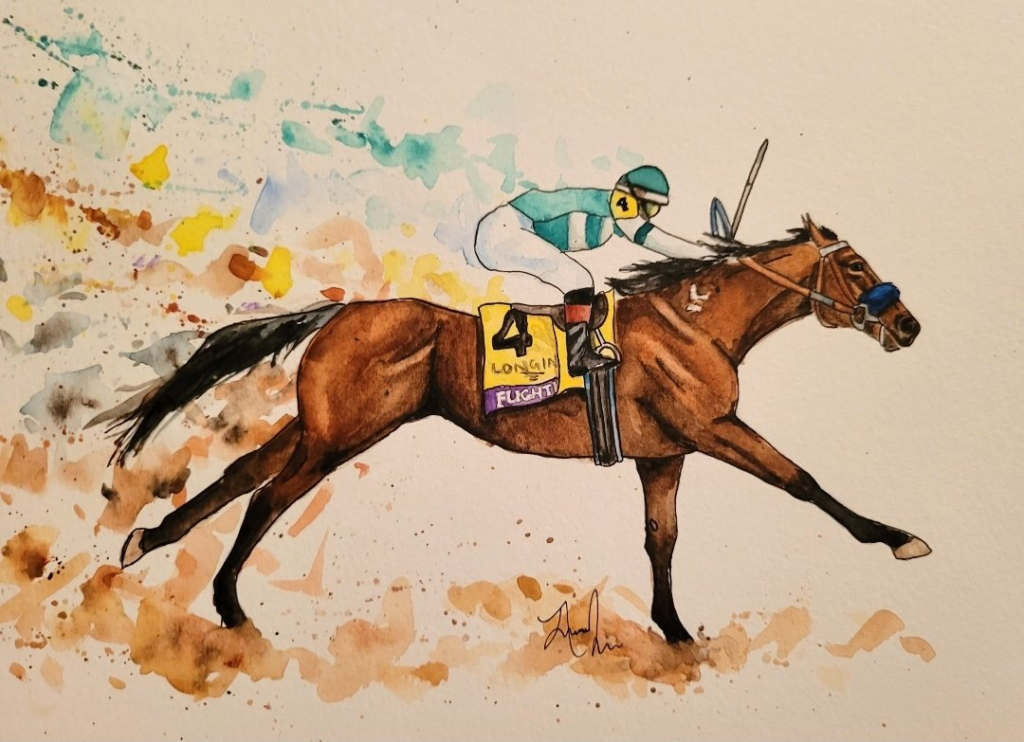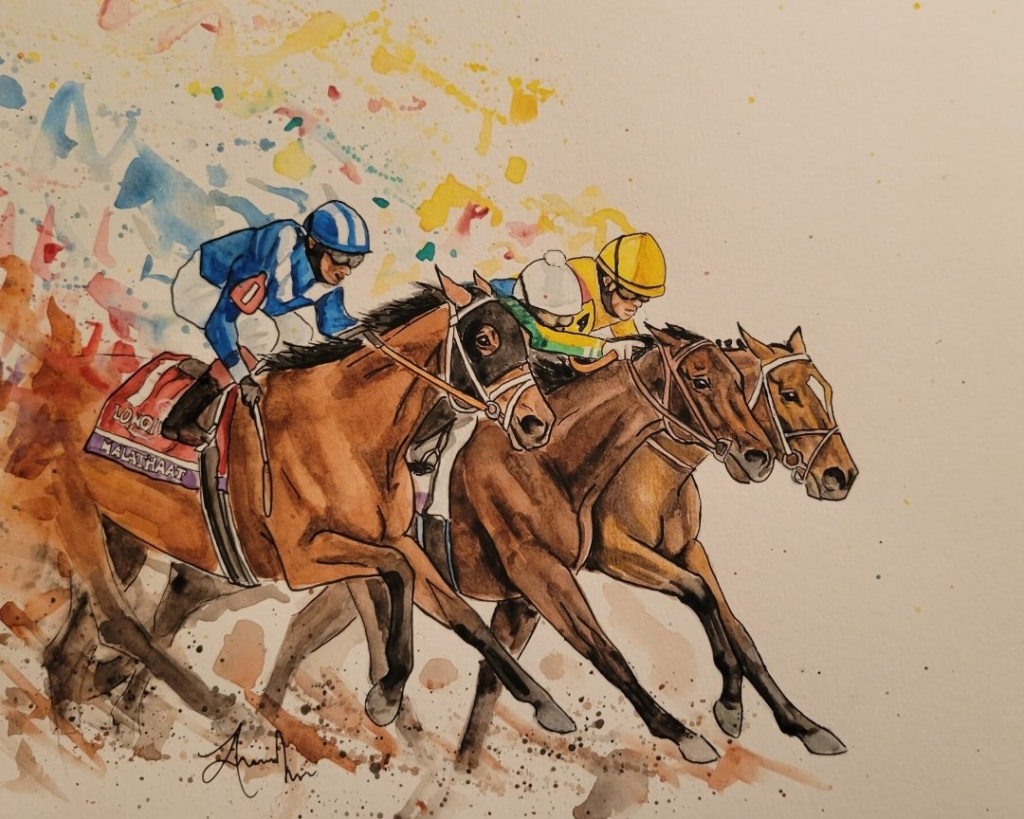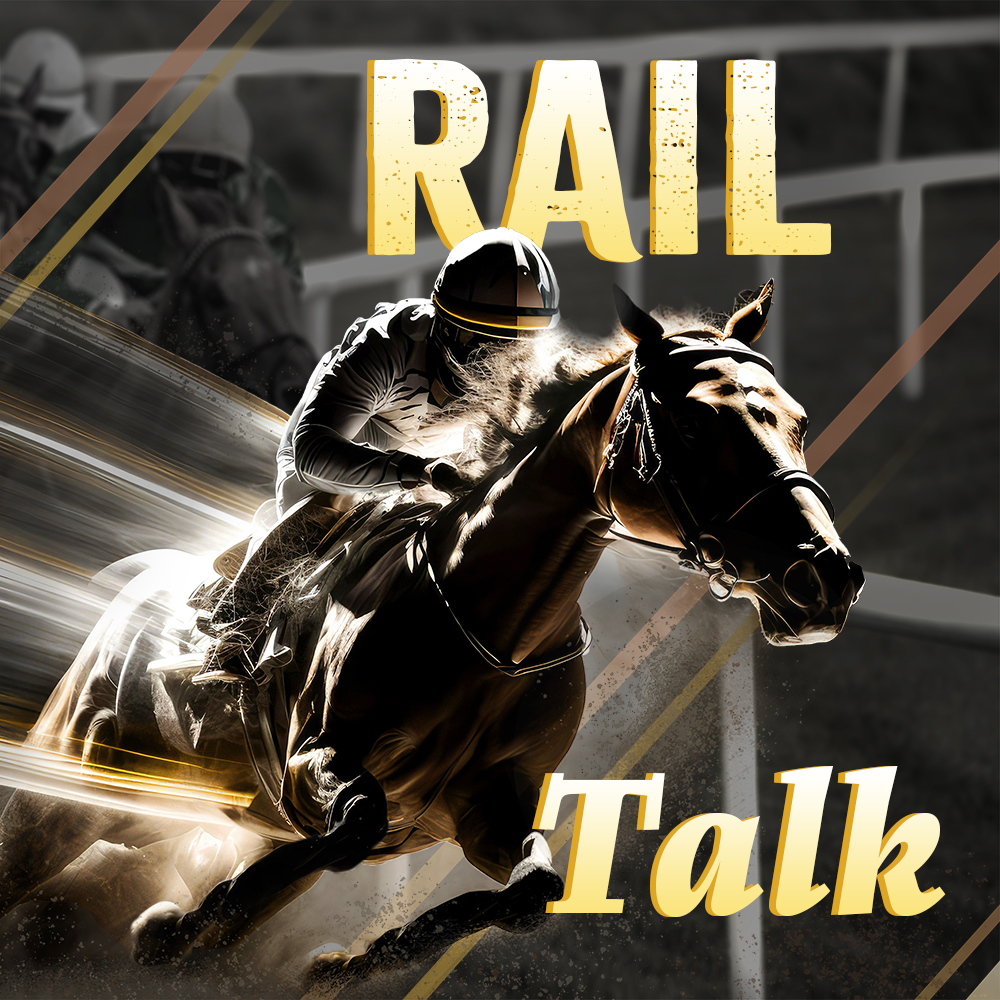
Artist: Amanda Lee Twitter/X handle @mandalay117
The U.S. horse population peaked in 1910 at 27.5 million. Horses were the backbone of society, pulling carriages, plowing fields, hauling heavy loads, and carrying riders. These magnificent creatures were integral to human mobility. Rural families could not get by without a horse. In cities, horses pulled everything from garbage collection to elegant coaches. The ratio of human to horse was 3:1. Everyone relied on horses, knew horses, and, in one way or another, touched horses. They were vital to human existence, and they were trusted companions.
Not surprisingly, horse racing was one of the most popular spectator sports back then. In the last 100 years we’ve seen a significant decline in the role of horses. Thanks to the industrial revolution, gas-guzzling buses, cars, tractors, etc., have taken the reins, choked our skies, and relegated horses to sporting, ranching and recreation. The decline in the importance of horses in our lives triggered the reduction of horse populations, as well as the waning popularity of horse racing.
When fewer people have personal connections with horses, fewer people understand horses or horse racing, and horse racing loses its allure. And, let’s face it, from a distance racing can be very misunderstood. Horse racing is one of the original sports, spanning centuries and civilizations. Horses love to run. They race one another in fields, unprompted. Riders racing to identify whose horse is fastest is as old as time.
But our relationship to horses has changed. They are still loved, up close and from afar, but fewer people understand their desire to race, work, and connect with humans. Horses have proven to be loyal and therapeutic allies, promoting our physical and emotional well-being. We need horses. And they need us.
The welfare of the horse is paramount. Horse racing must–and current initiatives like HISA certainly do–put the safety of horses above all else. Racing can no longer exist without this commitment from everyone involved.
But while the sport of racing is facing issues from both the outside and inside, it is the horse, just as much as horse racing, that is fading from our world. And that’s sad for everyone. We would love to hear your thoughts below.

Artist: Amanda Lee Twitter/X handle @mandalay117







Whenever I’m asked what got me into horse racing, my answer always begins with “Well, I’ve always loved horses.” I had that conversation as recently as Thursday. Yesterday, when I was feeling heartbroken over the injury of one of my favorite horses and after a summer of heart-wrenching racing tragedies, the question was posed to me: what keeps you coming back after such heartbreak?
It’s hard to verbalize that answer properly, but it all comes back to the horses, and many of the reasons you listed above. The thrill of watching athletes triumph and prevail. The breathtaking beauty of equine brilliance. The connection between horse and human working as a team. The love that’s seen in every pat on glistening necks or kiss on velvet noses.
The connection with horses is something that not everyone truly experiences, and few understand. I’ve tried and failed many times to explain to family and friends why it’s so much more than just being “the horse girl.”
My final year of college, I was in a public speaking course, and for one of my projects I delivered a speech about specific horses I’ve been able to love and learn from. I talked about the partnership, the communication, the growth. When time came for feedback afterwards, I remember very clearly a classmate immediately raised his hand with a thoughtful look on his face. I expected some constructive criticism, but instead he commented “I’ve never seen horses that way before.” And went on to explain how my words made him see horses in a completely different light that he’d never considered. His comments have stayed with me over the years. It made me feel very lucky that I have had the experiences I have.
It’s very true what you say that horses have faded from every day life, and fewer and fewer people understand the draw. But I will continue trying my best to share with others what horses mean to me (albeit with my imperfect words) and hope maybe a few more people see horses in a new light like my classmate did that day.
That is really sweet, Amanda. I love horses, and I especially love people who love horses. They are the best people. It is up to horse lovers to keep horses visible so that they can be loved by many. You do that with your words and with your art. Thank you for all you do.